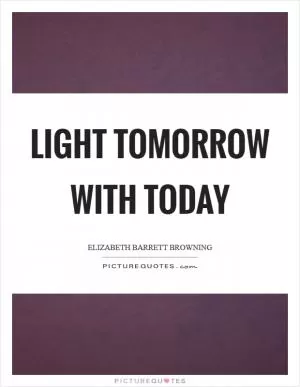Smiles, tears, of all my life! - and, if God choose, I shall but love thee better after death

Smiles, tears, of all my life! - and, if God choose, I shall but love thee better after death
Elizabeth Barrett Browning, one of the most renowned poets of the Victorian era, penned the famous lines, “Smiles, tears, of all my life! - and, if God choose, I shall but love thee better after death” in her sonnet 43 from the collection “Sonnets from the Portuguese”. These lines encapsulate the depth of love and devotion that Browning felt for her husband, fellow poet Robert Browning.The sonnets were written during the courtship and early years of their marriage, and they provide a glimpse into the intense and passionate love that the couple shared. In sonnet 43, Browning expresses her undying love for her husband, using the imagery of smiles and tears to convey the range of emotions that love encompasses. The line “and, if God choose, I shall but love thee better after death” speaks to Browning’s belief in the eternal nature of love, transcending even death itself.
Browning’s love for her husband was not only romantic but also deeply spiritual. She believed that their love was ordained by God and would endure beyond the confines of earthly life. This belief in the power of love to transcend death is a recurring theme in Browning’s poetry, reflecting her own personal experiences and beliefs.
The sonnets from the Portuguese are considered some of Browning’s finest work, showcasing her mastery of the sonnet form and her ability to convey complex emotions with clarity and depth. The collection is a testament to the enduring power of love and the transformative effect it can have on the human soul.












 Friendship Quotes
Friendship Quotes Love Quotes
Love Quotes Life Quotes
Life Quotes Funny Quotes
Funny Quotes Motivational Quotes
Motivational Quotes Inspirational Quotes
Inspirational Quotes